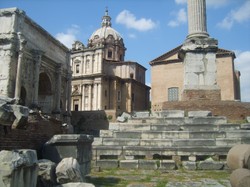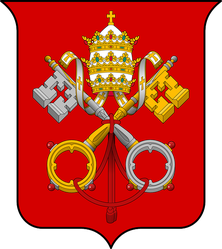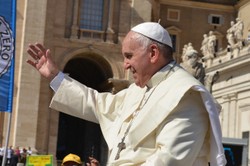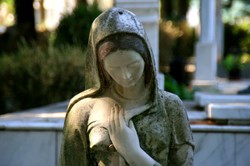The Italians have a saying,"After a fat pope a thin one." The meaning of this saying is that every pope is different from his predecessor and is often complementary to the one before, by which I mean that the incomer's strong points complement his predecessor's weaknesses. We must be clear, there has never been a pope who had only strengths, for every pope has strong and weak points. So what are we to say about Pope Francis?

Taking Stock: Pope Francis at 80
by frankbeswick
As he reaches his 81st year we can reflect on what the Pope has done with his pontificate.
Reorganizing the Church.
It is important to realize that there can never be a perfect pope, for the head of the church is Christ, and so the pope is merely his vicar. Being a stand-in for the Son of God is no mean task, and none ever match up with Christ's standards. Each pope brings his talent set into the papacy, and each talent set is individual to a specific pope. If we look at the last three popes, John Paul II had talent at drawing crowds, but he had to have a strong theological adviser, Cardinal Ratzinger, to guide him. Ratzinger later became Benedict the Sixteenth, and brought his expert theological mind to the highest office in the church. He wrote some excellent theological works that brought Christian ideas to the general public, and he made strides at relating to the intellectuals, whom John Paul had alienated. But Benedict was not an administrator, and in his time the problems of the Vatican's outdated institutional structure that worsened during John Paul's declining years, came to a head. Benedict abdicated, leaving the church free to elect Francis, with the remit of re-organizing the church.
Francis is well-educated, with a Ph.D in Theology, but he does not have the depth of theological expertise that Benedict has. But his remit was to get the institution right, and this was always going to be difficult because institutions resist change. Over the next two years Francis took stock and re-organized officialdom. Some officials who resisted change were sent back to their own countries. He restructured the Vatican departments and even brought in some women as officials. There are but few of them, but it is a start.
An important change was to introduce a council of eight cardinals to advise the pope. This council is selected to be representative of each continent. So there are cardinals from South, Central and North America, one each from Asia,Africa,Europe and Australia,and one to represent the Curia, the Vatican bureaucracy. The aim is to ensure that the Church is no longer dominated by Europeans. This is a recognition that the demographics of the church are changing, and that it is growing strongly in Africa and is strong in parts of Asia and South America, where it is facing some difficulties from evangelical groups funded by right wing American sources.
The pope has also restructured the Vatican bank, which had become a liability to the church. The problem was ever that clerics are not great financiers, for finance and the priestly life require different skill sets, and so having clerics in high positions in the bank had led to weaknesses, notably the fact that criminal money was passing through its coffers, playing on clerical financial naivety. Francis decided that it had to be reformed or shut down. It was reformed, and several accounts of dubious financial probity were shut down. Reforming the bank was not an easy task, as vested interests resisted papal reform measures.
Teaching
When Francis was elected I read an article by a secularist journalist who declared that his in-tray must include changes on abortion, homosexuality contraception etc. Wishful thinking, for the pope cannot change Catholic teaching! The deposit of faith was set at the time of Christ, and the church's role is merely to expound and expand what is already and always there.
But what Francis has done is to insist that while the teaching of the church changes not, it can and must be applied with mercy and sensitivity to the individual's circumstances. This attitude reflects a major division in Christian ethics between those who believe in a rigid set of rules and those who believe that in some cases the standard is set high so as to enable people to attain something. It is the position of those who realize that life is a process of growth, a road on which we travel, but most of us are not at the end of the road yet, so we are not fully where we should be. Sensitivity to the individual's spiritual level is vital, and what we expect of people who are at a higher spiritual level is greater than what we expect of people not as advanced. Thus while re-affirming the church' teaching on homosexuality he has stated that the Christian position has nothing to do with homophobia, and he has refused to condemn gays. Similarly, he has re-affirmed the church's line on abortion, but made it easier for women who have had abortions to return to the church. His general line is to oppose the sin, but not to condemn the sinner.
What is causing some difficulties between the pope and the conservatives is the question of the admission of people in problematic situations to the sacrament of communion. The church does not allow divorce, and does not permit re-marriage of divorcees in church. Those who break church rules on this matter are not permitted to receive communion. This has been an absolute rule for many centuries, but some clerics, including Francis, are of the opinion that the rules should be applied with mercy and sensitivity to individual circumstances and they wish to be able to re-admit divorcees to communion if the local bishop agrees. This issue is not settled yet, and there are powerful conservative forces opposed to the pope's more flexible and lenient opinion.
These conservative elements are opposed to change on women priests, and Francis has made no moves on this matter yet and does not seem likely to. However, he has set up a commission to look into the possibility of women deacons, and if this reform is permitted, a door will be levered open on the ordination of women.
What all should realize is that it is not the job of the Catholic Church to adapt its teaching to the age it is in, but to adapt the age to the teaching. The church cannot and never will run with the times. While it modifies its strategy to the times, it does not modify what it teaches,for its loyalty is solely to God, to whom it is answerable.
Issues
The church strives for peace in the world, and currently the world is troubled by war and threats of even worse wars. ISIS are causing havoc in some countries, as are Boko Haram, whose rampages in parts of Africa are causing great harm to Christians. Somehow the papacy has to defend Christians while reaching out to make peace with Muslims.For this reason Francis made a visit to the war torn Central African Republic, to meet Christians and Muslims. This was at some risk to his life, as many feared a suicide bomb attack, which fortunately did not happen. In Iraq he reached out to the persecuted Yazidi community, who have been brutally assailed by ISIS, and he ordered that church funds for suffering Iraqi Christians be shared with Yazidis.
Francis is not a great theologian, as Benedict is, and so I don't expect any great new insights from him. But I am unconcerned by this, for what I want him to leave behind when he passes is an institution in better health than it was when he took over it. Similarly he thinks on his feet, so it is said, and so sometimes he has to find himself rowing back to clarify a statement. Maybe he needs to be a bit more guarded in what he says. But he does have the determination to control an ossifying Vatican institution, and that is what we want him for. The world needs a church that stands up for Christ's teaching, even at risk to itself, and which speaks truth to power and to the masses, and Francis will certainly do this;but people respond better to mercy than to harshness, and this is one of Francis' strong points.The world also responds well to his ascetic lifestyle, in which he has foregone the large papal apartments for a room in a Vatican guest house.
Life is not easy at 80, and Francis has to contend with arthritis and the lack of part of one of his lungs, which was removed when he was a young man. That he still keeps up a heavy work rate at this age and with these conditions is an example to all of us.
You might also like
Conclave: a reviewConclave is a film which covers the secretive and fascinating process of el...
Hope: a reviewHope is the autobiography of Pope Francis detailing his life from early child...
Adrienne von Speyr a life on the edge of heavenSwiss convert to Catholicism, doctor, step mother and mystic Adrienne von Spe...








 Darkness over the Earth the skies darkened when Jesus was crucified22 days ago
Darkness over the Earth the skies darkened when Jesus was crucified22 days ago
 TheThousand Year Gardenon 11/26/2025
TheThousand Year Gardenon 11/26/2025
 Women of the Gospelson 10/11/2025
Women of the Gospelson 10/11/2025
 Religious Gardenson 08/25/2025
Religious Gardenson 08/25/2025




Comments
There are no official celebrations forbavpope'-s birthday,but private ones are possible.
Thank you!
Your wizzley causes me to consider papal celebrations of their birthdays.
Do they experience official celebrations and, with family and friends, personal celebrations?
This saying should not be taken literally. It is a metaphor for saying that when we replace a pope we choose a person with a character different from their predecessor.
The introductory paragraph begins with "The Italians have a saying,"After a fat pope a thin one."
Does that saying base itself on the fact of there being fat popes even as I have no association of any pope with excess girth!
Some lay women are employed by the Vatican, but I do not know the exact location of the bank.
The second and the fourth paragraphs to your first subheaading, Reorganizing the Church, comment respectively upon women in Vatican departments and upon the Vatican Bank.
Would women employees of Vatican departments be nuns and would they live in Vatican City?
Also where would the Vatican Bank be located?
There is in Catholic circles a story that a priest once told his spiritual adviser that he had little time to do what he needed to do and asked advice. The adviser's answer as that he should increase his prayer. This he did, to find that prayer was energizing him to do more. All popes have to have a rich and deep prayer life. They often rise about five in the morning to pray for some hours. Maybe this is how Francis manages to get the most out of his time.
I too like his simplicity and common touch, but I do agree that the burden of office means that his personal communications are limited. The amount of reading of documents that he must do ahead of meetings with bishops and officials must be great. Being on top of the intricate workings of the Vatican is not a job that I would like [or could do!]. Then there is the Vatican's work for peace,which involves much diplomacy. What a load at eighty!
I like the simplicity, such as after being elected he returned to his modest hotel room. He is not about any form of opulence, and wants to remain a person in touch with others. He has even called individuals when first elevated, but I believe he has little time for such personal involvement after finding the requirements of the office.
Thanks for this. I do not have Netflix